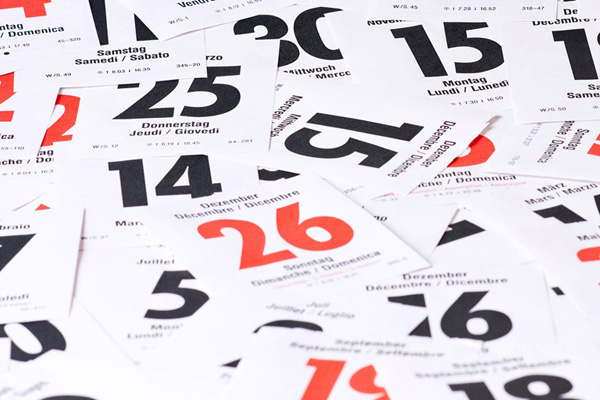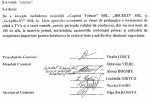
● MONDAY, February 27
Concerns about implementation of energy efficiency project
The Chisinau City Hall is accused of trying to implement the energy efficiency project to thermally insulate public buildings, financed by the EBRD and EIB, in a nontransparent way. Energy expert Sergiu Tofilat and expert in housing problems Ianus Cusnir said there are suspicions that the money will be appropriated, as it happened in the case of the MOREEFF project that financed the replacement of windows and doors. According to the experts, the City Hall on February 23 presented the feasibility study concerning the energy efficiency project. But when details were requested and when reference was made to the appropriation within the MOREEFF project, the mayor asked to provide evidence.
Fewer apartments put into operation in 2016
As many as 4,162 apartments and 1,240 private homes were put into commission in Moldova in 2016, a decrease of 18.4% on 2015, show data of the National Bureau of Statistics. President of the Federation of Building and Building Materials Industry Trade Unions “Sindicons” Victor Talmaci considers the main cause for this discrepancy is the decline in the purchasing power of the population, the sudden decline in the amount of work and the oversaturated market.
● TUESDAY, February 28
Period for bidding to supply electric power extended
Until April 1, when the contract for the supply of power with the Cuchurgan Power Plant expires, the Moldovan energy regulatory authorities are to select the company that will supply electricity during the next year. The Ministry of Economy said that owing to the regional situation in the energy sector and the crisis in Ukraine, the period for accepting bids to supply electric power was extended. Calin Negura, head of the Energy Division of the Ministry of Economy, said that before choosing a bid, the electricity market operators must be sure that the supplier will fulfill the contractual obligations. “Given the energy crisis in Ukraine and the situation of 2014, when the Ukrainian side stopped the supply of electric power, the operators in this county can no longer provide guarantees. That’s why the group of observers decided to extend the deadline for bidding, so that the economic bids of the Ukrainian operators are not excluded from the competition,” he stated.
EU supports business development projects in Gagauzia and Taraclia
The second round of a EU-funded grants’ contest is starting on March 1 to help create new businesses and develop small and medium enterprises (SMEs) in the ATU Gagauzia and Taraclia. Both start-ups and experienced entrepreneurs are encouraged to apply for non-reimbursable financial assistance of up to €18,400 per selected project. The money will be provided through the EU-funded “Support for Agriculture and Rural Development in ATU Gagauzia and Taraclia” (SARD) Program implemented by UNDP. Eligible to apply are entrepreneurs from ATU Gagauzia and Taraclia district, who can provide a contribution of 20% of the requested amount. Besides the financial support, the selected entrepreneurs will benefit from guidance and individual business coaching during the first year. Every beneficiary will be required to create at least three new jobs.
More Moldovan wine companies could be allowed to export to Russia
Most of the 13 Moldovan wine businesses that were recently inspected by experts of Rospotrebnadzor will be able to resume the export to Russia after the results of lab tests are made known and the submitted documents are finally assessed, the chief of Russia’s food safety watchdog Anna Popova stated for Ria Novosti. Minister of Agriculture and Food Industry Eduard Grama said there is now no official information from the Russian authorities about the companies that could export to Russia and when. The Moldovan side is waiting for the final appraisals.
IMF mission chief: Moldovan authorities have continued to make progress
The International Monetary Fund (IMF) staff and the Moldovan authorities have reached staff-level agreement on the first review under an economic reform program supported by a three-year Extended Credit Facility and Extended Fund Facility (ECF/EFF) arrangement. The staff-level agreement is subject to approval by IMF Management and the Executive Board. Consideration by the Executive Board is expected in April, following the authorities’ implementation of a number of prior actions. Completion of the review will make available SDR 15.7 million (about US$ 21.2 million). The announcement was made by the chief of the IMF mission Ben Kelmanson in a news conference held jointly with Prime Minister Pavel Filip. Ben Kelmanson said the Moldovan authorities have continued to make progress in tackling long-standing vulnerabilities in the financial sector and advancing structural reforms. These efforts have helped to restore financial stability, and growth has started to return. The economy is projected to grow by 4.5 percent in 2017, higher than earlier expected.
● THURSDAY, March 2
Bill on tax amnesty was withdrawn under pressure of society, opinions
The draft law on tax amnesty was withdraw under the pressure exerted by civil society on whose who thought it up. The issue was discussed in the talk show “Emphasis on today” on TVR Moldova channel. “It was a very harsh intervention on the part of civil society. The authors of this bill tried to promote it swiftly in Parliament, without the appraisal of the Government, the National Anticorruption Center and ministries. They argued that this amnesty would contribute to economic development and this is the frozen limit. Such amnesties were provided in Kazakhstan and this wasn’t the best example. This means that Moldova is under the powerful influence of the CIS, while the pro-European orientation remains a myth,” said Victor Ciobanu.
Pavel Filip: Compensations will reach farmers who were really affected by calamities
Prime Minister Pavel Filip said the Government will provide compensations to the farmers affected by the natural disasters of 2016 based on clear data and honest assessments. In the March 1 meeting of the Cabinet, the Premier said the lists of those who were affected by the frosts of 2016 were compiled and the damage caused to these was assessed. Regulations are now to be worked out to specify the conditions for partially compensating the damage caused by frosts. Pavel Filip noted that the process of compiling the lists was delayed owing to the large number of filed applications, including by dishonest entrepreneurs who applied for compensations even if they presented no information about their annual harvests during the last few years or their enterprises didn’t pay taxes to the state.
Residents of IT parks will pay common tax of 7% of sales
The Cabinet approved a series of amendments to the fiscal legislation and legislation concerning mandatory social and health insurance with the aim of creating the conditions needed for implementing the Law on IT Parks. Among the approved amendments is the introduction of a common tax of 7% of the sales revenues for the residents of IT parks. According to the authors, the measure will contribute to increasing the attractiveness of IT parks before national and foreign investors and to accelerating the development and pace of realizing the potential of this industry.
Political confrontations on Association Agreement reduce investment, German experts
The political confrontations over the Association Agreement and the Deep and Comprehensive Free Trade Agreement (DCFTA) with the EU discourage the potential investors from coming to the Republic of Moldova. The politicians can say what they want, but should be attentive to the impact of their statements on the business climate. Such suggestions were formulated by the German Economic Team (GET Moldova). GET Moldova leader Ricardo Giucci, Berlin Economics director, said the intensification of trade with the EU is not new, but a long-term trend, which started more than 10 years ago, long before the DCFTA was signed. Since 2004, Moldovan exports to the EU increased by more than 10% per year in average (in USD). As a result of this trend, the EU is now by far the No. 1 trading partner of Moldova: 65% of total exports are destined for the EU and 49% of imports are supplied from the EU.
● FRIDAY, March 3
One salary report instead of five
The business entities that have employees will present one common report instead of distinct five reports on salaries and related taxes. This is provided in a bill that was passed by the legislature in the first reading. According to the Ministry of Economy, which is the author of the bill, the presentation of the five reports implies additional costs and requires time for compilation given that there are five different documents and data. But many of the data included in the five reports repeat. The business entities should also interact with three different reporting entities, namely the State Tax Service, the National House of Social Insurance and the National Health Insurance Company.
GET Moldova experts explain positive effects of DCFTA
The Association Agreement and the Deep and Comprehensive Free Trade Agreement (DCFTA) with the EU have a positive impact on Moldova’s economy, experts of the German Economic Team (GET) Moldova established as a result of an analysis. The experts said Moldova’s exports to the EU rose from US$400 million in 2004 to over US$1.3 billion in 2016. Economist Woldemar Walter said an upward trend was witnessed in trade with the EU, interrupted by foreign stocks such as the world economic crisis of 2008 and the decline in raw material prices in 2015. In 2016, exports to the EU increased and the expectations are that they will continue to grow. Almost two-thirds of Moldova’s exports are destined for the EU and half of imports are supplied from the EU.
American company to explore for oil and gas in Moldova
The American company Frontera Resources will invest about US$6 million and will create between 200 and 300 jobs in Moldova. Prime Minister Pavel Filip and the company’s executive director Steve Nicandros on March 3 signed a declaration of cooperation on the exploration of hydrocarbons in the Dobrogea basin in southern Moldova. Frontera Resources was selected as result of as bidding contest staged by the Government and was allowed to explore for natural gas and crude oil during 40 years.
Economic Council under President set up
Igor Dodon on March 3 signed a decree to create the Economic Council under the President. The Head of State announced that over 40 personalities, managers, owners of companies operating in different sectors of the economy, heads of professional associations and experts were accepted as members. The Council will be headed by President Igor Dodon, while presidential advisers Elena Gorelova and Ion Perju will act as deputy heads. The first meeting of the Council was held also today. “I noted that together with the creation of this Council, all the bills of an economic character that will be submitted for promulgation will be examined by the Council. On the other hand, the socioeconomic development program that is being worked out by the presidential administration and the legislative initiatives that will be presented in the future will also be initially debated by the Economic Council. We called on the members to formulate themselves proposals for developing the economic sectors of the country,” said Igor Dodon.
German experts says adjustments to Moldova-EU DCFTA are possible
Moldova can ask for higher tariff quotas if it reaches the ceiling set by the Deep and Comprehensive Free Trade Agreement (DCFTA) with the EU, said experts of the German Economic Team Moldova. Berlin Economics director Ricardo Giucci stated the EU increased the export quotas for other states. Asked if Moldova has the right to renegotiate particular clauses of the Agreement, Ricardo Giucci said the negotiations were held before the signing of the document and only particular adjustments can be made now. These can be asked within the Association Council that meets regularly.
● SATURDAY, March 4
Code of Urbanism and Constructions passed in first reading
Parliament adopted in the first reading the draft Code of Urbanism and Constructions. The document consists of two parts. The first regulates the development of territories and settlements, while the second refers to urban planning. Deputy Minister of Regional Development and Construction Anatolie Zolotkov said in Parliament the procedure for obtaining building authorizations will be simplified, while the number of necessary documents will be reduced.
Tax concessions for firms facing risk of tax evasion
Three companies were proposed to be included in the list of firms that have the right to extend the period of paying VAT and customs duties. These include a firm that faces an increased risk of tax evasion, as one of the members of the commission said. Under the draft Government decision, which was proposed for public debates, the commission consisting of representatives of the Ministry of Economy, the Ministry of Finance, the State Tax Service and the Chamber of Trade on February 6 decided to suggest putting the companies “Capital Tobaco” SRL, “IHCEKO” SRL and “GrupBiz-SV” SRL on the list of those that can extend the period of paying VAT and customs duties during the production period, but not for more than 180 days.
Novelties related to lending
Parliament passed a bill to amend and supplement a series of legal acts that refer to lending and creditworthiness. One of the novelties is that the number of sources based on which the credit report is compiled is extended to have a broader financial profile of the applicant for loans. Aurica Doina, member of the Administration Board of the National Commission for Financial Markets, has that now the credit history contains only information from commercial banks and microfinance institutions. By extending the sources of the record of the borrower’s credit history, it will be possible to find out if the applicant possesses realty, savings and what salary incomes this has and how this honors the obligations based on the existing contracts. For example, if this bought domestic appliances On credit, it is established how the applicant pays the installments or how this pays for public utilities and makes other payments. “The presentation of the information at the credit bureau by other sources is optional, based on contract,” stated Aurica Doina.


